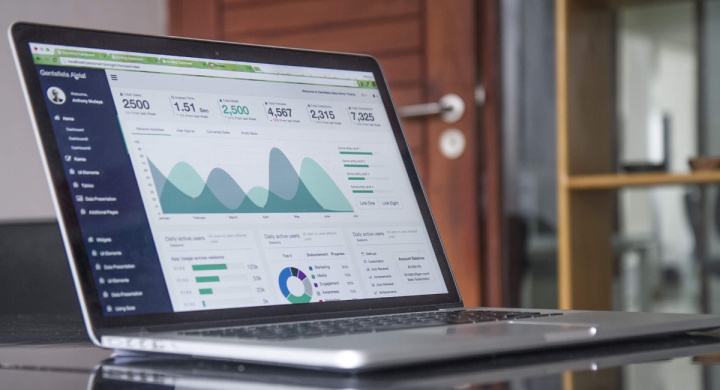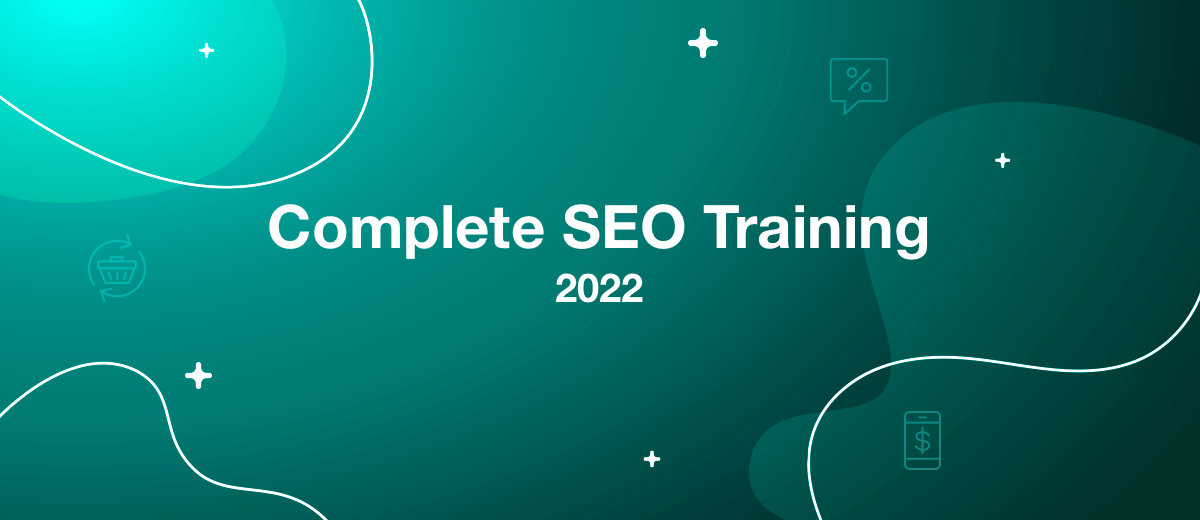Complete SEO Training 2022
Since Google's inception in 1998, the industry has seen several shifts. One constant remains, however: search engine rankings are the single biggest factor in how much organic traffic your site receives. With a large number of keywords indexed by Google and ranking well, you may expect an avalanche of visitors.
On the flip side, even if your site is great, if it isn't visible in the search engine results pages (SERPs), you won't see much, if any, organic search traffic. We've compiled a list of best practices to assist you to increase your site's Google ranking. You could already be using some of these, while others will be brand new to you. Read over each of them and see where you can make improvements this year.
Different Types of Search Engine Optimization
There are a few different types of SEO techniques that can improve your website’s ranking. However, the most common type of SEO services is on-page optimization. This type of optimization is designed to improve your website’s content and structure so that it is more search engine friendly. In other words, it ensures that your website’s pages are properly indexed and ranked by the search engines. And Off-Page also plays an important role in SEO strategies.
On-page SEO
Optimization of individual pages of a website is known as "on-page SEO." There are several considerations to make before proceeding. As the user, you have complete control over all of these aspects. These are the elements of on-page SEO:
Keyword Research
The first step in optimizing your website is deciding which keywords you wish to target. Doing keyword research is essential for this purpose. Here, you'll select the major and secondary keywords you'll use to inform the rest of your meta tags and content creation.
The main parts of a successful keyword study are:
- Search volume
- Competition
- Relevancy
Google's Keyword Planner and Ahrefs are just two of the many keyword research tools you may use to find relevant terms. After settling on a set of keywords, you can begin tailoring your web pages to them.
Title Tag
A header title element, the title tag displays a summary of your site's content in search engine results. Additionally, it is the single most crucial aspect of on-page SEO in terms of click-through rates. As a rule of thumb, the first 50–60 characters of the title tag are seen by search engines.

Meta Description
The meta description of a website is a short synopsis of the information found there. Search engine results pages also have them. A meta description expands on the information provided by the title tag, helping visitors better grasp the content of your page. The meta description also affects the number of clicks.
Format of a URL
Uniform Resource Locator is another name for a URL. Use of search engine optimization (SEO) friendly URLs is recommended for this reason. If your website's URLs are poorly structured, it might hurt its search engine rankings.
Header Tags
Use header tags to make it clear where the sections of your text begin and end. Header tags range in importance from H1 to H6, in that order. The H1 tag designates the primary heading of a page, whereas the H2 tag indicates a secondary heading. Search engines are able to read and grasp the material more clearly thanks to these tags.
Internal Reference
The connections that connect different pages within your website are called internal links. As a result, visitors may easily explore the site. Also, they help disperse link equity, which is always a plus (value passed from one website to another site).
Utilization of Keywords
In order to index a web page, a search engine will utilize Natural Language Processing (NLP). In this way, NLP aids search engines in their pursuit of content and keywords.
If your website is focused on digital marketing but you've only used the term "digital marketing" once, you probably won't see great results when people search for this term. Related keywords, such as digital marketing strategies, digital marketing tools, digital marketing techniques, etc., should be included.
Sitemaps
Sitemaps are a method of arranging a website that is used to better inform both visitors and search engines about the site's hierarchy.
Off-page SEO
Besides on-page optimization, off-page SEO is a great way to boost your SERP position. It also aids in establishing your website as an authoritative resource that users can trust. A rise in traffic, page rank, and brand recognition are further advantages of off-page SEO.
Link Building
Building Backlinks Off-page optimization for search engines often refers to this process. Link building refers to the method through which you attract links, or inbound citations, from other websites to your own with the help of link building tools for SEO. Link building to outside sources is another name for this. When it comes to creating inbound links, the content always reigns supreme. When it comes to on-page SEO, ranking well depends on having high-quality content that can be optimized for certain keywords. Off-page SEO relies on other sites linking back to yours, which is why you need to have high-quality content.
Methods for Increasing Your Site's Visibility
If you implement these strategies to boost your website's SEO, you should see it surge to the top of search engine results pages. Or you can make use of solutions that facilitate this, such as a seo extension for Magento 2.
1. Publish Relevant, Authoritative Content
One of the most important factors in search engine rankings is the quality and authority of the material you publish. Great content writing is essential, especially when engaging in SEO marketing. In order to boost your site's authority and relevance, you need to attract more visitors with high-quality content that is tailored to your target audience. Hone your web writing abilities so that you come out as knowledgeable and trustworthy on the subjects you cover.
2. Update Your Content Regularly
You have likely seen that we have strong opinions on content. It's not just humans; search engines do it too. One of the best measures of a site's importance is how often its content is updated, so make sure to provide new material frequently. Regular content audits (semesterly, for instance) and subsequent revisions will ensure that your material is always up-to-date and useful.

3. Metadata
To describe the page's content or metadata, you can use the area between the head> tags. If your site was built with a content management system (CMS) created by the UMC, all of this information will already be set up for you. Metadata, however, should be reviewed and updated as your site evolves.
- Title Metadata. The titles at the tabs of a browser and the titles of search engine results are both the result of title metadata. It's the most vital piece of information about your webpage.
- Description Metadata. The browser may utilize the textual description of the description information to return your page in a search. It's the site's "window display," a brief, enticing summary of the site's offerings that you hope will entice readers to go through to see more.
- Keyword Metadata. Search engine rankings are almost never tabulated using keyword metadata. However, you should be familiar with your keyword phrases; adding them to your keyword information won't harm. A wide range of expressions should be used. Aim for no more than 3–7 sentences, each of which should be no more than 4 words. A degree in computer science is a perfect illustration.
4. Have a link-worthy site
Your SEO will increase if other websites link to your page because it has useful information that readers can use to learn more about a specific topic. Such a page will be authoritative, objective, and well-written.
5. Make use of alternative text tags
Ensure that you use alt tags, or alternative text descriptions, for all of your images and videos. They help search engines find your website, which is important for everyone, but especially for people who use screen readers or browsers that don't display images.
For example, if there's a photo of a Mac and there's activity going on, such as a recording presentation, you can have alt text like how to screen record on mac, mac screen recording live, and so on.
Conclusion
Start implementing an SEO plan to get your website visible among the millions out there. The advanced diversity training in the workplace will get you ready to hit the ground running in the SEO sector. You will learn everything from keyword management and research to on-page and off-page optimization, link building, URL construction, SEO analytics, and much more as you gain the hands-on expertise necessary to manage inbound marketing campaigns.
Do you want to achieve your goals in business, career and life faster and better? Do it with ApiX-Drive – a tool that will remove a significant part of the routine from workflows and free up additional time to achieve your goals. Test the capabilities of Apix-Drive for free – see for yourself the effectiveness of the tool.

